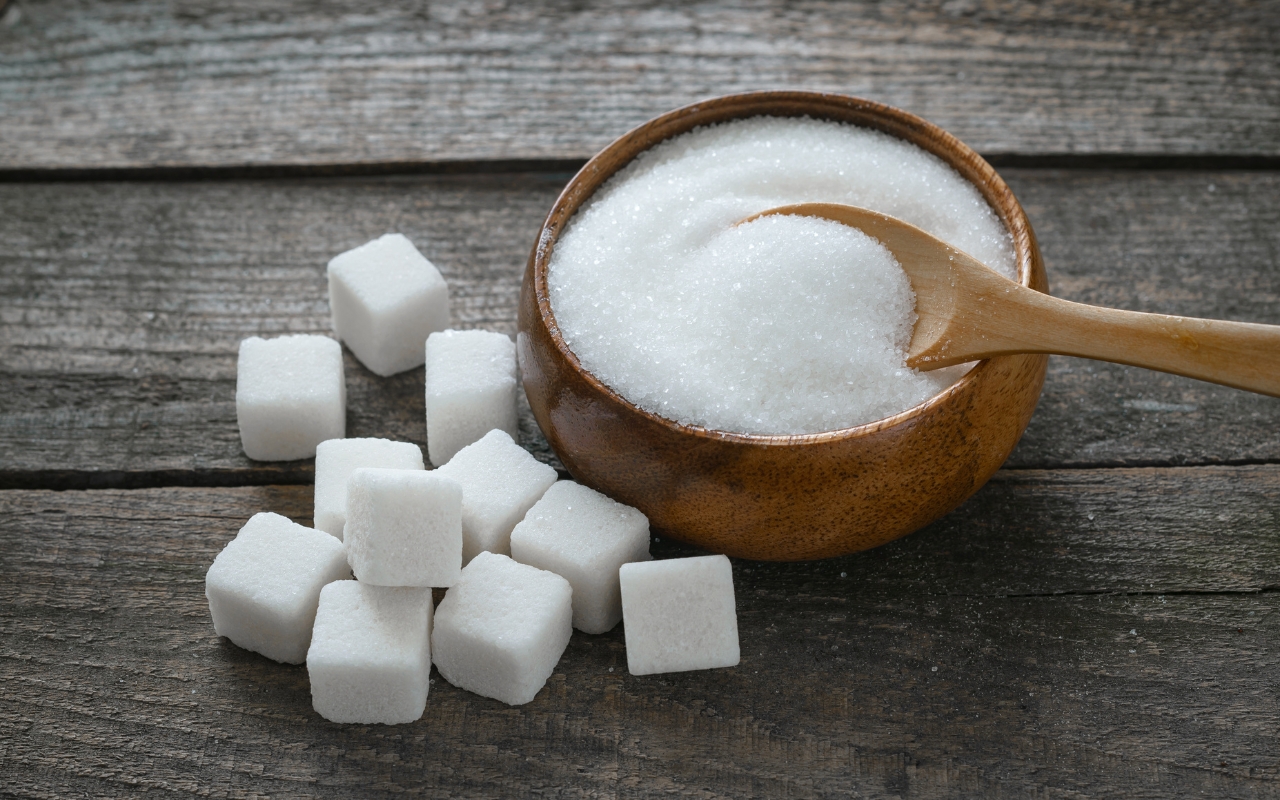In today's fast-paced world, reducing sugar intake has become vital to maintaining a healthy lifestyle. Whether you're looking to shed a few pounds, manage a health condition, or improve your overall well-being, cutting back on sugar offers numerous benefits. This comprehensive guide will walk you through the intricacies of reducing sugar consumption and provide actionable steps to begin your journey toward a healthier life.
Sugar, in its many forms, is ubiquitous in modern diets. It lurks in apparent places like sweets and sodas, but it's also hidden in seemingly healthy foods such as yogurt, cereal, and even whole-grain bread. Consuming too much sugar can lead to a host of health issues, including obesity, diabetes, heart disease, and dental problems. By consciously reducing your sugar intake, you can significantly improve your quality of life and set yourself on a path to long-term health.
First, let's understand why sugar is so prevalent and what its impact is on our bodies. Sugar is a carbohydrate, and carbohydrates are a significant source of energy. However, not all carbohydrates are created equal. Simple carbohydrates like those found in sugar are quickly absorbed by the body, leading to spikes in blood sugar levels. These spikes can cause a surge of energy, followed by a rapid drop, resulting in cravings for more sugar and a vicious consumption cycle.
Added sugars, in particular, are problematic because they provide no nutritional value. They are often referred to as “empty calories,” contributing to weight gain and other metabolic issues. It's important to differentiate between naturally occurring sugars found in fruits and vegetables and added sugars that are introduced during food processing.
To begin your journey towards reducing sugar intake, identify the familiar sources of added sugars in your diet. This requires meticulous label reading and an understanding of the various names for sugar. Common aliases include sucrose, glucose, fructose, maltose, dextrose, and high-fructose corn syrup. By familiarizing yourself with these terms, you can make more informed choices at the grocery store.
One effective strategy is to gradually reduce your sugar consumption. Going cold turkey can be challenging and may lead to withdrawal symptoms such as headaches and irritability. Instead, aim to cut back slowly. For instance, if you typically have two sugary snacks daily, try reducing them to one. This incremental approach allows your taste buds to adjust and smooth the transition.
Another practical tip is to replace sugary foods and beverages with healthier alternatives. Swap sugary cereals for whole-grain options, replace sodas with sparkling water or unsweetened tea, and choose fresh fruit instead of sugary desserts. These small changes can significantly reduce your overall sugar intake.
Meal planning and preparation can also be game-changers in your quest to reduce sugar. Cooking at home allows you to control the ingredients and avoid hidden sugars found in processed foods. Experiment with herbs, spices, and natural sweeteners like stevia or monk fruit to enhance the flavors of your dishes without adding sugar.
Staying hydrated is crucial, as dehydration can often be mistaken for hunger or sugar cravings. Drinking plenty of water throughout the day keeps you hydrated and helps curb unnecessary snacking.
Moreover, incorporating protein and healthy fats into your meals can help stabilize your blood sugar levels and reduce cravings. Foods like nuts, seeds, avocados, lean meats, and legumes provide sustained energy and keep you feeling fuller for longer. Pairing a sweet snack with a source of protein, such as mixed nuts, can slow the absorption of sugar and prevent spikes in blood glucose.
Adequate sleep is another key factor in managing sugar intake. Lack of sleep can disrupt your hormones, particularly those that regulate hunger and satiety, leading to increased cravings for sugary foods. Aim for seven to nine hours of quality sleep each night to support your overall health and reduce the likelihood of overconsuming sugar.
Exercise also plays a vital role in managing sugar cravings. Physical activity helps regulate blood sugar levels and improves insulin sensitivity. Aim for at least 150 minutes of moderate-intensity weekly exercise, such as brisk walking, cycling, or swimming. Incorporating strength training exercises can also be beneficial in building muscle and boosting metabolism.
Mindfulness and stress management techniques, such as meditation, yoga, and deep-breathing exercises, can help you become more aware of your eating habits and reduce emotional eating. Stress and emotional distress can often drive sugar cravings, leading to overconsumption. By addressing the root causes of your cravings, you can develop healthier coping mechanisms and reduce your reliance on sugar for comfort.
It's important to recognize that social situations and cultural traditions can sometimes make it challenging to reduce sugar intake. However, planning and making conscious choices can help you navigate these scenarios. For example, if you're attending a social gathering, consider bringing a healthy dish to share or eating a nutritious snack beforehand to reduce temptation.
Understanding the significant impact of sugary drinks on your diet is paramount. Beverages such as sodas, sweetened juices, and flavored coffees contribute substantial added sugars to your daily intake. Opt for water, herbal teas, or drinks sweetened with natural fruit infusions to stay hydrated without the added sugars.
Reading food labels is a critical skill in your sugar reduction journey. The Nutrition Facts table on packaged foods provides essential information about the sugar content. Look for the “added sugars” line, which indicates how much sugar has been added during processing. Aim to choose products with little to no added sugars and be wary of terms like “syrup,” “nectar,” and “molasses,” which indicate the presence of added sugars.
Engaging in a sugar-reduction challenge, such as the seven-day challenge proposed by the book “Sugar Shock,” can be a motivating way to kickstart your efforts. By making one healthy swap daily, you can gradually reduce your sugar intake and develop sustainable habits. This challenge can also help you identify and address the underlying triggers of your sugar cravings.
For many individuals, making drastic changes all at once can be overwhelming. Setting realistic goals and celebrating small victories can make the process more manageable and enjoyable. Keep track of your progress through a journal, an app, or simply by noting how you feel as you reduce your sugar intake.
When dining out, make informed choices by asking about the ingredients and preparation methods of the dishes you're considering. Many restaurants offer healthier options or can accommodate special requests to reduce added sugars.
In addition to dietary changes, consider the broader lifestyle factors that can influence your sugar consumption. Reducing stress, engaging in regular physical activity, prioritizing sleep, and fostering supportive social connections all contribute to a holistic approach to reducing sugar intake.
For families, teaching children the importance of reducing sugar can set the foundation for healthier habits. Encourage kids to participate in meal planning and preparation, introduce them to various fruits and vegetables, and lead by example by making more nutritious choices yourself.
Cutting back on sugar doesn't mean eliminating sweetness from your life altogether. Exploring natural sweeteners, such as raw honey, maple syrup, and coconut sugar, can provide a touch of sweetness without the adverse effects of refined sugars. However, using these alternatives in moderation is essential, as they still contribute to calories and can impact blood sugar levels.
One of the most significant benefits of reducing sugar intake is the positive impact on your overall health. Studies have shown that lowering sugar consumption can lead to weight loss, improved cardiovascular health, better blood sugar control, and enhanced mood and cognitive function. As you experience these benefits, you'll likely find additional motivation to continue your efforts.
In conclusion, reducing sugar intake is a decisive step towards achieving better health and well-being. By understanding the sources of added sugars, making gradual changes, and adopting healthier habits, you can enjoy a life with fewer sugar-induced health problems. Embrace this journey with optimism and determination, knowing that every small change brings you closer to a healthier, more vibrant life.
For more information and tips on reducing sugar intake, consider visiting MyPlate, HCF, and Healthline. These resources provide valuable insights and practical advice to support your journey towards a healthier diet.
Embark on this journey confidently, armed with the knowledge and tools to make lasting changes. Your future self will thank you for your commitment and effort in reducing your sugar intake today.








